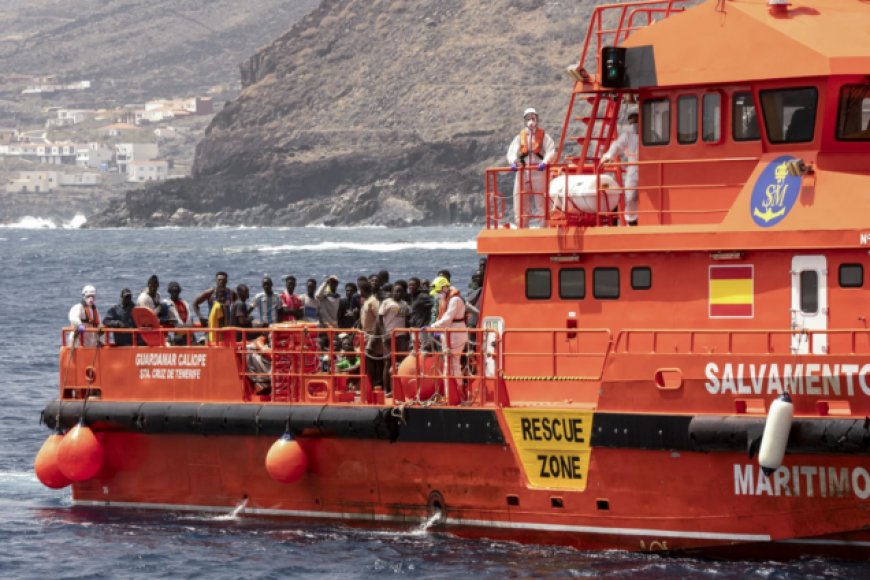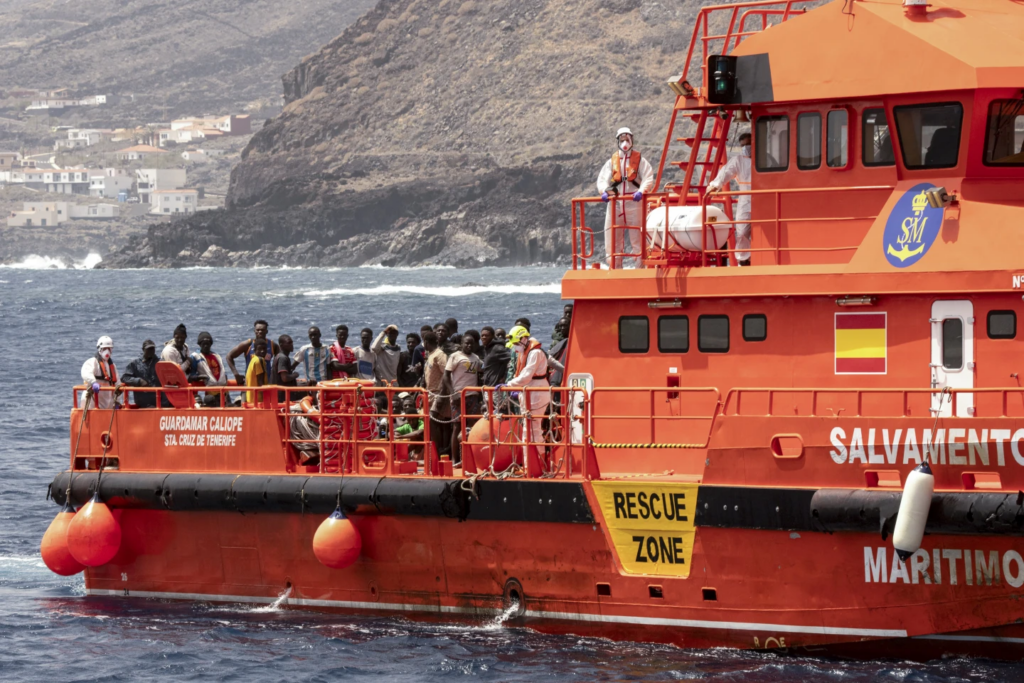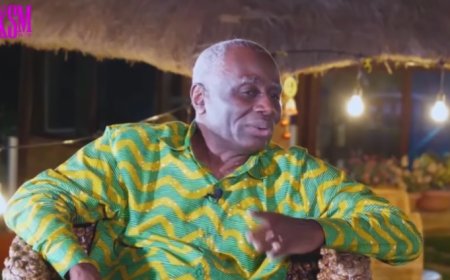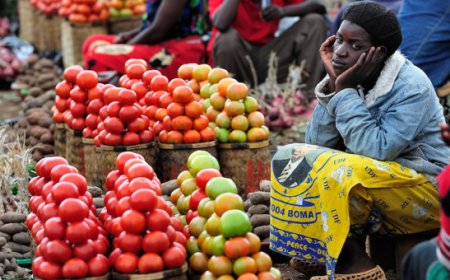Spain and Mauritania Sign New Agreements to Curb Irregular Migration to Canary Islands
Spanish Prime Minister Pedro Sánchez and Mauritanian President Mohamed Ould Ghazouani have announced agreements aimed at addressing the surge in irregular migration to the Canary Islands. The initiatives include expanded circular migration programs, enhanced security cooperation, and efforts to combat human trafficking and smuggling networks. Spain will also launch a Spanish-Mauritanian business council and open a Cervantes Institute branch in Mauritania to boost bilateral relations.

Spain’s prime minister announced a series of agreements with the West African nation of Mauritania on Tuesday to stem a surge in migrants making the dangerous Atlantic journey to the Canary Islands.
Speaking alongside Mauritanian President Mohamed Ould Ghazouani in Nouakchott, Prime Minister Pedro Sánchez said Spain will expand its circular migration program to Mauritanians and renew cooperation between the two nations’ security forces to combat people smuggling and trafficking networks.
“Despite the rhetoric that is growing in Europe, migration is not a problem,” Sánchez said, openly recognizing the need for migrant workers in Spain’s aging society. “It is a need that involves certain problems, and for this we must push formulas that allow us to manage the phenomenon of migration in a humane, safe and orderly way, to benefit our respective societies.”
Sánchez is on a three-day tour of West Africa to reinforce bilateral relations with Mauritania, Gambia and Senegal, where the majority of migrant boats reaching the Canary Islands are being launched from.
The Spanish archipelago — located close to the African coast and used as a stepping stone for migrants and refugees trying to reach continental Europe — has seen more than 22,000 people land on its shores since January, more than double the number of irregular arrivals for the same period last year, according to Spain’s Interior Ministry.

“Until not long ago Spain was also a country of migrants ... they aspired to better lives, much like those who take great risks and take on this dangerous adventure,” Sánchez said.
Among those making it to the Canaries are thousands of Malian refugees fleeing violence and instability in the Sahelian nation as well as youth from Senegal, Mauritania and other West African countries who are seeking better job opportunities abroad.
There are also increasingly more teenagers and children traveling alone to the Canary Islands, which has overwhelmed the local government responsible for their care. Spanish authorities say they are bracing for even more arrivals this fall when sailing conditions in the deadly Atlantic Ocean between West Africa and the archipelago are more favorable.
It’s the second time that the Spanish leader has visited Mauritania this year. In February, Sánchez traveled to the largely deserted and impoverished nation alongside European Commission President Ursula von der Leyen and announced 210 million euros (around $235 million) to help the country curb migration. Seen as a beacon of stability in the volatile Sahel region, Mauritania hosts about 200,000 Malian refugees on its border.
Ghazouani, who was reelected in June, thanked Sánchez for Spain’s “constant availability to develop our country” and seek regular migration pathways for its citizens.
The leaders said their governments will hold a high level meeting in Mauritania in early 2025. In addition to the migration and security agreements, Spain launched on Tuesday a Spanish-Mauritanian business council to boost investments and announced it would open a branch of the Cervantes Institute in Mauritania to promote Spanish language and culture.
“Africa will continue being a priority for Spain’s foreign policy,” Sánchez said.
What's Your Reaction?





































































